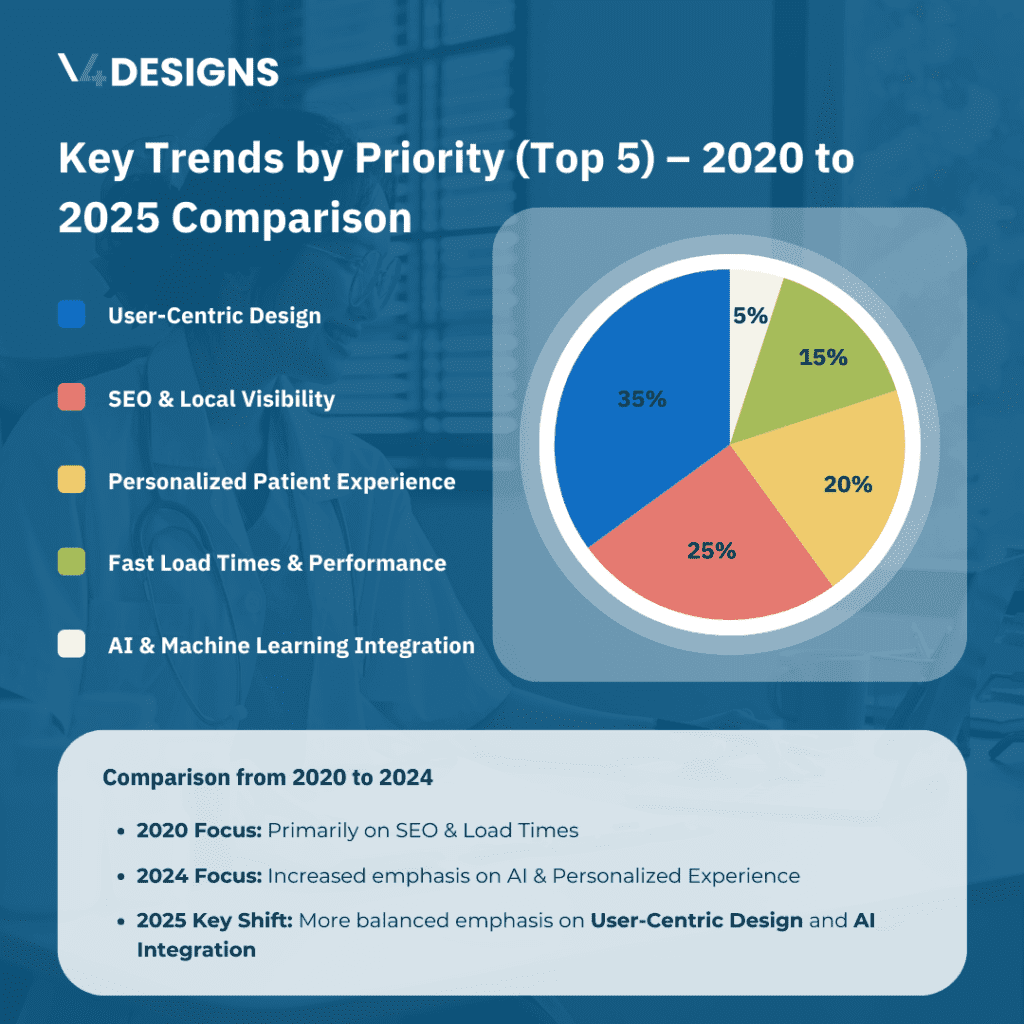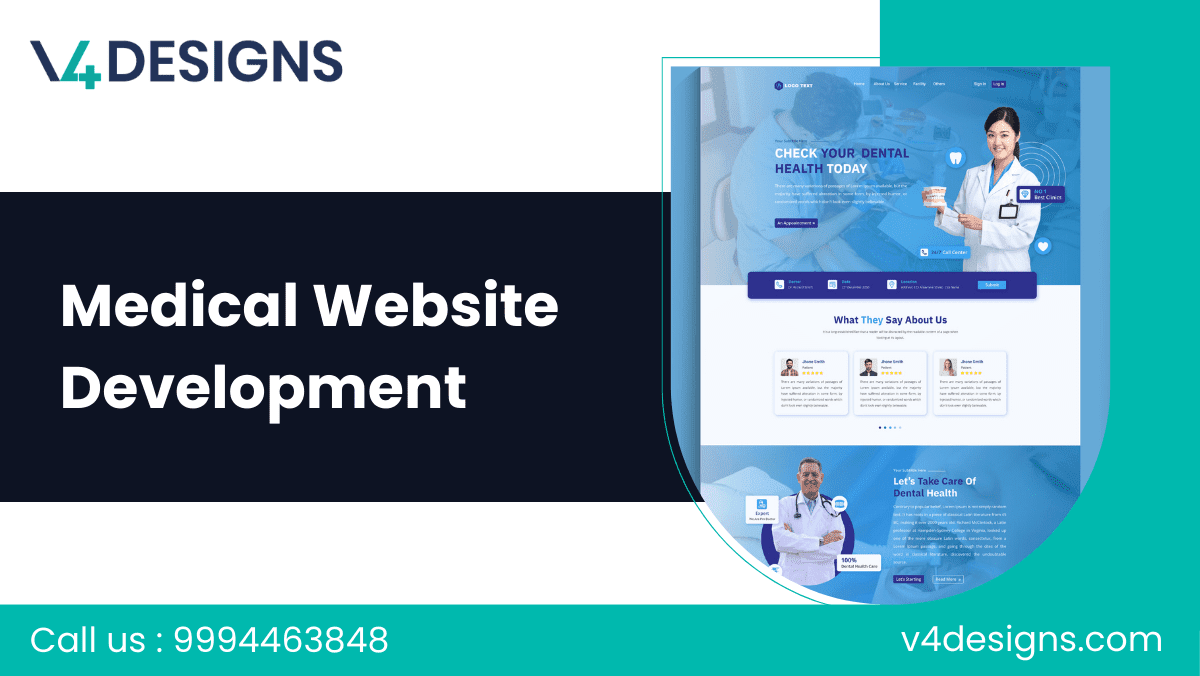The advancement of Medical Website Development has changed the way patient engagement and healthcare accessibility. As more patients seek medical information and appointment scheduling online, having a user-friendly, patient-oriented website is essential for healthcare providers. Whether you are a solo practitioner or a multi-speciality hospital, investing in Website Development for Doctors can significantly improve your practice’s credibility and patient satisfaction.

Why Is Medical Website Development Essential in 2025?
- Increased Patient Expectations: Patients now look for smooth online interactions, whether it’s scheduling appointments or finding health information.
- Improved Accessibility: Websites break geographical barriers, allowing patients to reach with specialists globally.
- Better Patient Education: A well-designed website can provide valuable medical resources, building trust and transparency.
Key Features of an Effective Medical Website
To create an impactful medical website, consider integrating the following features:
1. User-Centric Design
- Easy navigation with intuitive menus.
- Mobile-friendly layouts for enhanced usability on smartphones and tablets.
2. Online Appointment Booking
- Efficient scheduling systems with calendar integration.
- Automated reminders for reducing no-shows.
3. Secure Patient Portals
- Safe access to medical records and test results.
- Private messaging features for secure doctor-patient communication.
4. Telehealth Integration
- Video consultation options.
- Payment gateways for online consultations.
5. Comprehensive Content
- Blogs and FAQs addressing common patient concerns.
- Visual resources like infographics and videos for better understanding.
Steps to Build an Engaging Medical Website
Step 1: Define Your Objectives
- Are you looking to attract new patients or educate existing ones?
- Identify the key goals to guide your website’s structure and content.
Step 2: Choose the Right Web Development Team
- Work with experts in Medical Website Development who understand the details of healthcare marketing and compliance.
- V4Designs focuses on building websites specifically for doctors and healthcare organizations.
Step 3: Focus on SEO and Content Marketing
- Optimize your website for search engines with targeted keywords like “Website Development for Doctors.”
- Regularly update content to keep it engaging and relevant.
Step 4: Test and Launch
- Perform usability testing to ensure the site meets patient needs.
- Monitor metrics like bounce rates and appointment bookings post-launch.
Benefits of a Well-Developed Medical Website
- Better Patient Engagement: Encourage interaction through educational blogs, feedback forms, and patient testimonials.
- Stronger Online Presence: Rank higher on search engines with optimized content and design.
- Increased Practice Efficiency: Automate appointment scheduling and reduce administrative workloads.
- Enhanced Credibility: A professional website builds trust and positions your practice as a leader in healthcare.
Trends in Medical Website Development for 2025
1. AI-Powered Chatbots
- Provide instant answers to patient queries.
- Help patients navigate through services and book appointments.
2. Voice Search Optimization
- Ensure your website is compatible with voice search to cater to tech-savvy patients.
3. Personalization
- Use data analytics to deliver tailored content and recommendations for individual patients.
4. Augmented Reality (AR)
- Enhance patient education by simulating procedures or conditions using AR.
Final Thoughts
To create an effective medical website, it’s essential to combine thoughtful design, robust functionality, and features that prioritize patient needs. With the technological advancements expected in 2025, now is the perfect time to invest in Medical Website Development. Whether you’re redesigning your existing site or starting from scratch, V4Designs is here to help. Contact us today to create a website that truly engages and serves your patients.
Don’t Miss: Effective Blog Strategies for Healthcare Practices.
FAQs
1. What are the essential features of a medical website?
Essential features include online appointment booking, secure patient portals, mobile-friendly design, telehealth integration, and comprehensive patient education resources.
2. How can SEO help in medical website development?
SEO ensures your website ranks higher in search engine results, making it easier for patients to find your practice online. It includes keyword optimization, quality content, and a user-friendly design.
3. Why should doctors invest in professional website development?
Professional website development ensures compliance with healthcare standards, improves patient engagement, and builds trust, ultimately leading to better practice growth and patient satisfaction.




